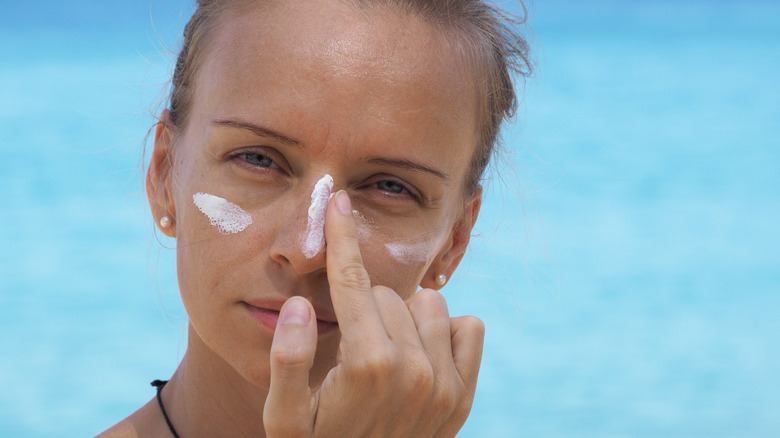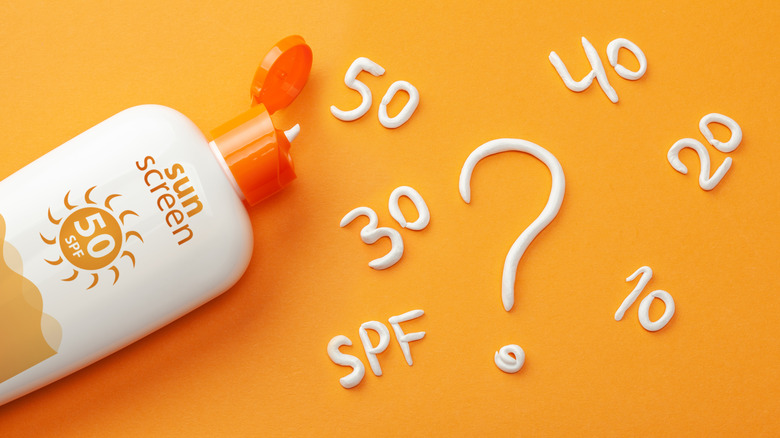Does Waterproof Sunscreen Really Work?
If you go to the store in search of a waterproof sunscreen, you may find yourself disappointed. That's because, per a ruling from the Food and Drug Administration, companies cannot make claims that their sunscreens are entirely waterproof or sweatproof (via Allure). What they can state is that they are water-resistant, which is what you want to look for.
Even water-resistant sunscreen doesn't offer perfect protection, however, and you'll need to be diligent about reapplying. One study conducted in England found that when immersed in salt water, the SPF dropped by 59% after just 40 minutes, according to the BBC. Toweling off can reduce effectiveness even further.
Some sunscreens are also tested to be "very water-resistant" which means they are tested to last for up to 80 minutes in the water, according to the Skin Cancer Foundation. But the foundation cautions that all sunscreens eventually wash off in water or with sweat.
The different types of sunscreen
The key is to start with a good, quality sunscreen that offers broad-spectrum protection. That's protection from both the sun's UVA and UVB rays, and it should be indicated on the packaging. UVA rays cause aging, and UVB rays burn the skin, but they both cause the damage that leads to cancer (via Skin Cancer Foundation).
Then, be sure to reapply every two hours that you're in the sun. Use the amount that would fill a shot glass to cover the exposed skin on your entire body. Reapply more often if you're getting in the water.
You can choose either a mineral or chemical sunscreen. Mineral sunscreens are the kind that leave a slight white color on the skin when applied, and they work by creating a physical barrier that block the sun's rays. They are made from ingredients like titanium dioxide and zinc oxide.
Chemical sunscreens work below the surface of your skin, absorbing and dispersing the sun's rays to render them ineffective. No matter which type of sunscreen you choose, if you're going to be out in the sun for any length of time, use a product with SPF of 30 or more, even if it's cloudy.


